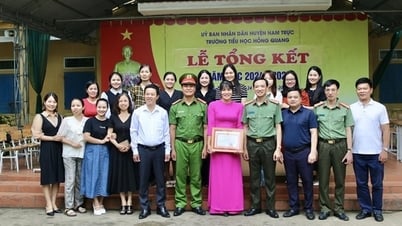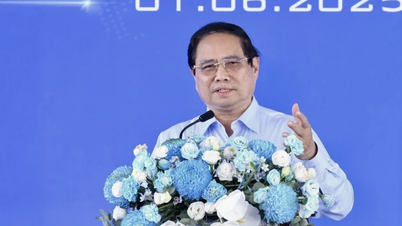Digital Assets – From Concept to Global Collateral Practice
In countries such as the EU (MiCA), the US (UCC), Japan, Korea, Singapore... all have specific definitions of digital assets. The definitions focus on electronic properties, transaction capabilities, and purposes such as payment, investment, ownership. However, Vietnam currently does not have a definition related to digital assets, but only a definition of assets in general. Assets under Vietnamese law are stipulated in Article 105 of the 2015 Civil Code (BLDS) as follows: “1. Assets are objects, money, valuable papers and property rights; Assets include real estate and movable assets. Real estate and movable assets can be existing assets and assets formed in the future”.
Collateralizing loans with digital assets is a relatively new issue, but this is an irreversible trend in the digital economy era. With the explosion of digital, many decentralized credit platforms secured by NFTs are constantly increasing. Indeed, holding an NFT allows borrowers to make a loan transaction without having to go through complicated procedures at the bank or present any identification documents. Lending with digital assets is clearly convenient and relatively safe for the parties. Because there are no complicated procedures like traditional loans. Even the processing of collateral is done in a digital environment and is completely automated, saving a lot of management costs.
Implications for Vietnam
From the implementation in other countries and international organizations, Vietnam can draw lessons to build a suitable legal framework, promote innovation, ensure financial safety and protect consumers in the spirit of Resolution 57-NQ/TW of the Politburo .
The definition of assets according to the Civil Code is not enough to recognize digital assets. Therefore, it is necessary to add a technology-neutral definition to suit future development. We believe that it is necessary to add point 1, Article 105 of the Civil Code in the following direction: “1. Assets are objects, money, valuable papers, property rights and valuable electronic records that can be controlled, traded or used for payment and investment”. In addition, there should be specific regulations to classify digital assets (cryptocurrencies, securities tokens, NFTs, utility tokens) to apply appropriate regulations, avoiding confusion between financial and non-financial digital assets.
Vietnam should consider issuing a separate law or decree on digital assets, clearly defining the responsibilities of related parties such as issuers, exchanges, investors and requiring operating licenses. On the other hand, strengthen supervision against money laundering and terrorist financing, requiring exchanges to register with the management agency.
In addition, publicize information on risks, transaction fees, and energy consumption of digital asset projects to protect consumers and the environment; Develop a legal mechanism for smart contracts, ensuring legal binding when used in digital asset mortgages; Allow digital asset mortgages in real estate transactions, reduce barriers for foreign investors and optimize taxes...
In the immediate future, it is possible to issue a sandbox testing regulation allowing some banks or financial institutions to pilot digital asset mortgage loans for 3-5 years; Evaluate the pilot results to adjust the legal framework, ensuring a balance between innovation and risk control; Prioritize highly liquid digital assets during the testing phase; consider establishing a specialized agency to monitor the digital asset market, ensuring compliance with regulations on capital, risk management, and anti-money laundering. One of the contents is to implement a programto educate people about the risks of digital assets and how to safely use digital mortgage platforms; build a warning system and provide legal support for investors facing risks in digital asset transactions.
Digital assets have become an inevitable trend in the global economy, bringing many opportunities but also many challenges in terms of law and risk management. Collateralizing loans with digital assets, especially through DeFi and NFT platforms, has demonstrated great potential in revolutionizing the traditional financial industry. However, for sustainable development, countries need to build a clear legal framework, balancing between promoting innovation and protecting users.
For Vietnam, lessons from developed countries such as the EU, the US and Singapore show the importance of early recognition of digital assets, clear classification and establishment of appropriate monitoring mechanisms. At the same time, piloting (sandboxing) digital asset mortgage models and raising public awareness will be necessary steps to integrate with global digital finance trends.
Source: https://thoibaonganhang.vn/the-chap-khoan-vay-bang-tai-san-so-kinh-nghiem-quoc-te-va-ham-y-cho-viet-nam-163350.html


































































































Comment (0)